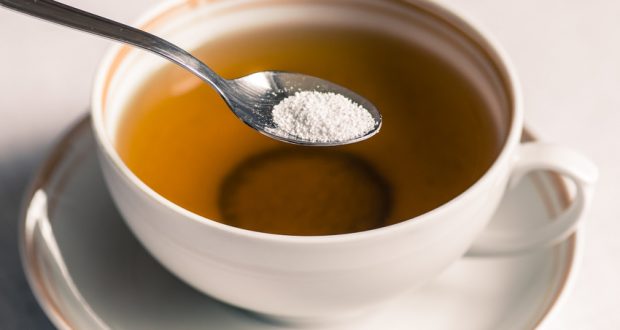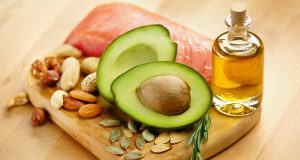As traditional sugar gets more and more bad press from health researchers, people are turning to artificial sweeteners. In the U.S., 40% of adults and 25% of children report consuming artificial sweeteners on a daily basis. Many use these sweeteners as a way to cut calories.
Through endless advertising, the multi-billion dollar weight loss industry has sold the goal of the “perfect body.” This has triggered a calorie-counting mindset, causing the actual nutrition of an item to be considered only after checking the amount of calories it contains.
This has made artificial sweeteners explode in popularity. However, research is now showing that not only do those sweeteners impede weight loss, they can actually encourage weight gain along with increasing one’s risk of developing chronic health conditions like diabetes.
In a recent study, researchers took samples of abdominal fat from 18 subjects who consumed artificial sweeteners. Fourteen of the study participants were obese, and the other four were of healthy weight. Researchers analyzed the participants’ abdominal fat samples for gene and cell abnormalities and compared them to those of individuals that did not consume artificial sweeteners.
In the healthy weight subjects, there were no significant gene or cell changes. However, in the obese participants, researchers saw significantly increased cellular glucose absorption compared to the samples of those who did not consume artificial sweeteners. The buildup of fat within cells was also present in sweetener consumers, and absent in non-consumers.
In short, artificial sweeteners encourage the body’s cells to absorb more sugar, as well as, to produce and hold on to more fat. Researchers believe that the effects are so much stronger for individuals whom are overweight or obese due to the fact that their insulin resistance is likely already compromised.
Consuming artificial sweeteners is a recipe for metabolic syndrome, an extremely dangerous combination of the above conditions including high blood sugar, elevated blood pressure, unstable cholesterol levels, and excess body fat around the waist. Metabolic syndrome causes risk for heart attack, coronary heart disease, and stroke to skyrocket.
Now, if you say “I don’t add artificial sweetener to my coffee and I don’t put it in my food, so I’m immune to these effects.” Think again.
Do you drink diet soda? Then you are consuming a huge amount of artificial sweetener, and the health effects are just as devastating. In fact, studies have found that those who drink artificially-sweetened beverages have double the risk of developing metabolic syndrome compared to non-consumers.
Research has found that diabetes risk in particular was higher in people who consume at least one diet drink or regular sugar-sweetened drink per day. There was no difference in diabetes risk between those who consume the “diet” drink and those who consumed a beverage sweetened with actual sugar.
Think about that. Whether you drink a regular soda or a diet soda, your risk for diabetes is the same. We know to stay away from regular soda, so how can we still justify diet soda? The simple truth is, we no longer can.
There are other mechanisms are at work here. One theory is that these artificial sweeteners “numb” the tongue and brain to sweet tastes, preventing the sweetener from satisfying your sweet tooth. This makes you turn to more and more “sweet” foods in the mission to satisfy your craving. This leads to more artificial sweetener consumption, which feeds the cycle to continue.
In fact, studies in mice have revealed that artificial sweeteners damaged physiological response to sweet tastes and caused the animals to over-eat high calorie “sweet” foods causing them to gain weight.
So with all of this research, how are artificial sweeteners still so popular? You may think that it’s the simple fact that most people still think they are doing something “better” for themselves and their health by consuming them. People want to avoid gaining weight and developing the diseases associated with sugar, but by consuming artificial sweeteners, those risks are in no way reduced.
There are some natural alternatives to sugar and artificial sweeteners. Two of the best known are stevia and monk fruit extract and are being used in an increasingly growing number of foods.
Only more research and widespread education of said research findings will help shed truth on the myth that artificial sugars are any better for the body than real sugar. Think about what you and your loved ones are putting into your body because of marketing or advertising. Consume with caution. We only have one life, so make your health count!
Sources:
https://www.sciencedaily.com/releases/2018/03/180318144829.htm
 Diabetic Kitchen
Diabetic Kitchen





Recent Comments